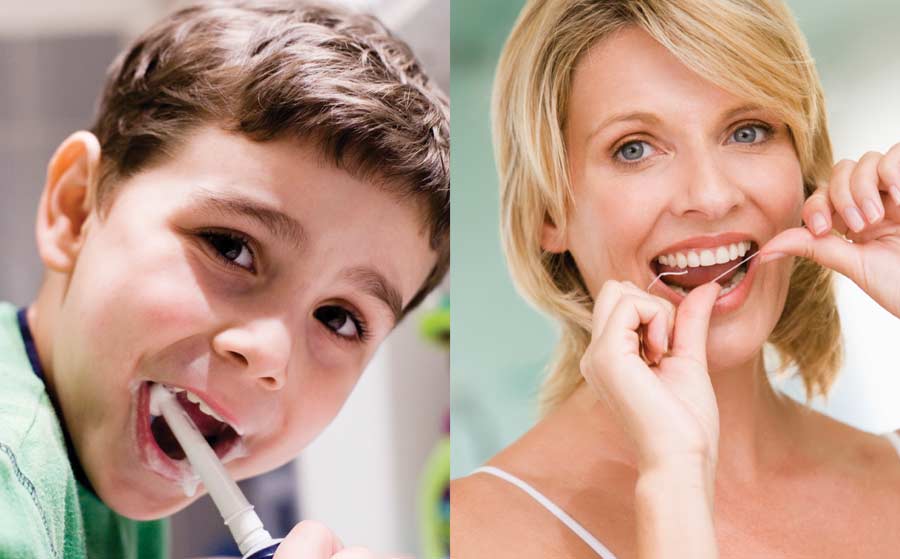Maintaining oral hygiene is not just about having a bright smile—it’s about protecting your gums, teeth, and overall health. Poor oral care can lead to cavities, gum disease, and even systemic health issues. Fortunately, you don’t need expensive tools or constant dental visits to keep your mouth healthy. With the right habits, you can ensure excellent oral hygiene right from the comfort of your home.
Brush Twice a Day – The Right Way
Brushing your teeth in the morning and before bed is essential. But technique matters more than frequency.
- Use a soft-bristled brush.
- Angle it at 45 degrees to your gum line.
- Use small circular motions.
- Brush for at least two minutes.
Avoid aggressive scrubbing, which can damage enamel and irritate gums.
Choose the Right Toothpaste
Not all toothpaste is created equal. Look for options that suit your specific needs.
- For sensitivity, choose desensitizing toothpaste with potassium nitrate.
- For natural care, herbal toothpaste with neem, clove, or charcoal can be effective.
- Avoid toothpaste with harsh abrasives or artificial sweeteners.
Don’t Skip Flossing
Flossing once a day helps clean areas where your toothbrush can’t reach. It removes plaque and food particles from between teeth and under the gum line.
- Use waxed floss if your teeth are tightly spaced.
- Slide the floss gently between teeth.
- Curve it around each tooth and slide it up and down.
Rinse with an Antibacterial Mouthwash
Using a mouthwash can help reduce plaque, prevent gingivitis, and freshen breath. Opt for alcohol-free options that don’t dry out the mouth.
Natural alternatives:
- Saltwater rinse (½ teaspoon salt in warm water)
- Green tea-based rinse
- Clove or peppermint oil diluted in water
Clean Your Tongue Daily
Bacteria can accumulate on your tongue, leading to bad breath and plaque buildup.
- Use a tongue scraper or the back of your toothbrush.
- Scrape from the back to the front gently.
- Rinse your mouth afterward.
Drink Plenty of Water
Water helps rinse away food particles and bacteria. Staying hydrated promotes saliva production, which naturally cleans the mouth and neutralizes acids.
- Drink water after every meal.
- Avoid sugary or acidic beverages between meals.
Limit Sugary and Acidic Foods
Excess sugar feeds harmful bacteria that produce acid, which leads to tooth decay. Acidic foods and drinks can erode enamel.
Reduce intake of:
- Soda
- Citrus fruits (if consumed excessively)
- Candy and chocolates
- White bread and starchy snacks
Replace with:
- Fresh fruits
- Vegetables
- Nuts
- Cheese (which helps neutralize acids)
Use Natural Remedies for Daily Oral Care
Some natural ingredients are highly effective for maintaining oral hygiene at home.
| Remedy | Benefit |
|---|---|
| Oil pulling (with coconut oil) | Reduces bacteria and inflammation |
| Clove oil | Numbs tooth pain and kills bacteria |
| Baking soda | Acts as a natural tooth whitener |
| Aloe vera | Soothes gum irritation |
Incorporating these into your daily routine enhances dental health without relying on chemicals.
Replace Your Toothbrush Regularly
Toothbrushes wear out over time. An old brush won’t clean effectively and may harbor bacteria.
- Replace every 3 months or sooner if bristles are frayed.
- Store your brush upright and let it air-dry.
- Don’t share toothbrushes.
Maintain a Consistent Routine
Consistency is the foundation of good oral health. A solid daily routine ensures that plaque doesn’t get a chance to harden or cause damage.
Daily routine checklist:
- Morning: Brush, scrape tongue, rinse
- After meals: Drink water or rinse
- Night: Brush, floss, scrape tongue, rinse
When to See a Dentist Even If You Care at Home
Even with the best at-home practices, some issues require professional care. Visit your dentist if you notice:
- Bleeding gums
- Persistent bad breath
- Tooth pain or sensitivity
- Loose teeth or swelling
- Visible tartar buildup
Conclusion
Home-based dental care can go a long way in preserving your oral health, appearance, and confidence. Simple habits like brushing, flossing, tongue cleaning, and mindful eating can prevent most dental issues. Incorporating natural remedies and staying hydrated further strengthens your oral hygiene routine. However, don’t forget to pair home care with regular professional checkups for long-lasting results.
FAQs
1. Can I use baking soda daily for brushing?
Baking soda can be used 2–3 times a week as a natural whitener, but overuse can erode enamel.
2. Is oil pulling a replacement for brushing?
No, oil pulling is a supplement, not a substitute. It can reduce bacteria but should be used alongside regular brushing.
3. Are natural mouthwashes as effective as commercial ones?
Natural mouthwashes like saltwater and herbal rinses are effective for mild cleaning but may not replace the strength of medicated rinses when treating infections.
4. How do I know if I’m brushing too hard?
If your gums bleed, your teeth feel sensitive, or the bristles on your brush are splayed, you might be brushing too hard.
5. What’s the best time to brush teeth—before or after breakfast?
Brushing before breakfast is usually better, as brushing immediately after acidic meals may damage enamel.
